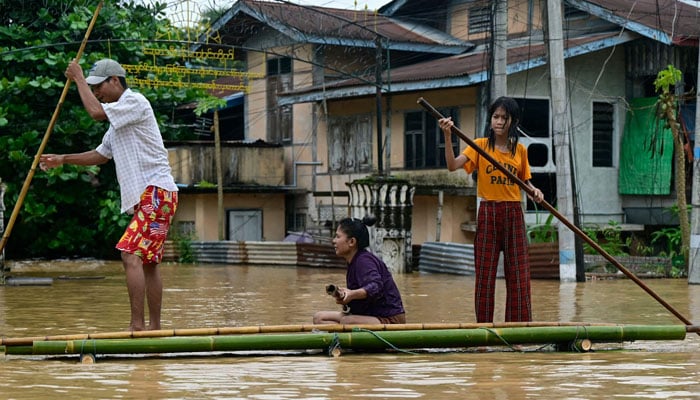
YANGON: The death toll from the flooding in the aftermath of Typhoon Yagi has doubled in Myanmar to reach 226, confirmed the state media.
The state TV on Monday revealed that 77 people were still missing following the storm which caused flooding that destroyed rice paddies and other crops spread across 640,000 acres.
Typhoon Yagi hit northern Vietnam, Laos, Thailand and Myanmar more than a week ago with powerful winds and an enormous amount of rain, triggering floods and landslides that have killed more than 500 people, according to official figures.
The United Nations Office for the Coordination of Humanitarian Affairs (UNOCHA) disaster response agency said an estimated 631,000 people had been affected by flooding across Myanmar.
Food, drinking water, shelter and clothes are all urgently needed, UNOCHA said, warning blocked roads and damaged bridges were all severely hampering relief efforts.
Poor communication, particularly with remote areas, has also meant information about casualties has been slow to come out.
More than 150,000 homes were flooded, the Global New Light of Myanmar reported, and the junta has opened more than 400 relief camps.
The UN's World Food Programme on Monday said the floods were the worst in Myanmar's recent history, without giving precise details.
Severe flooding hit the country in 2011 and 2015, with more than 100 deaths reported on both occasions, while in 2008 Cyclone Nargis left more than 138,000 people dead or missing.
The junta issued a rare appeal for foreign aid at the weekend, whereas the UNOCHA has said that more resources are urgently needed.
In recent years Myanmar's military has blocked or frustrated humanitarian assistance from abroad, including after powerful Cyclone Mocha last year when it suspended travel authorisations for aid groups trying to reach around a million people.
Even before the latest floods, people in Myanmar were grappling with the effects of three years of war between the junta and armed groups opposed to its rule, with millions forced from their homes by the conflict.













